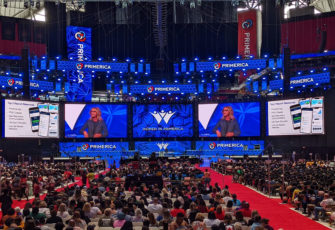
In a digital age filled with countless distractions, event marketing has emerged as an effective way to break through the noise and provide memorable experiences that truly resonate. However, crafting the perfect event can seem overwhelming. To help you navigate your marketing event process, we have compiled a range of strategies and ideas that will assist you in creating an unforgettable experience for your target audience.
Know Your Purpose
Before you start planning your event, determine the objective you want to achieve. What are your goals? Whether you aim to boost sales, enhance brand visibility, or establish yourself as an industry leader, having a clear purpose will help you make informed decisions throughout the event planning process. It will guide your choices when designing the event, identifying target audiences, and implementing promotional strategies. Remember that a focused approach typically leads to more favorable results in the long run.
Define Your Target Audience
For your event to be successful, it's vital to customize it for the right audience. This involves identifying the specific demographic that aligns with your objectives. Take factors such as age, gender, income, interests, and geographic location into consideration when deciding on your guest list. Doing so can create a captivating and relevant experience that increases the chances of attendees sharing positive feedback about your event.
Choose a Unique and Engaging Theme
Developing a theme that resonates with your target audience and aligns with your goals is important. A memorable and relevant theme can enhance attendee engagement and help differentiate your event from competitors. This step is crucial because people remember experiences that cater to their interests and communicate in a way they understand.
Create a Detailed Budget
Create a budget for an effective planning process. It involves carefully analyzing all anticipated expenses and assessing the available marketing and event production resources. By developing a comprehensive budget, you can determine which elements are affordable and identify areas where negotiation or cost-cutting may be necessary. Additionally, it's important to prepare contingency plans to account for any unforeseen costs that may arise.
Select a Suitable Venue
Choose the right venue for your event. It should match your theme, accommodate your crowd, and provide the necessary facilities. Accessibility is also important, so ensure the venue has good transportation connections, parking availability, and nearby accommodations. Take into consideration audiovisual options, catering services, and internet connectivity as well.
Plan Ahead
Make sure to allocate enough time for both planning and promotion. Identify key milestones in the event planning process, such as booking the venue, selling tickets, and implementing marketing strategies. Set clear deadlines for each milestone to ensure smooth coordination between teams and minimize last-minute panic. Having a well-defined timeline will help keep preparations on track and avoid any unnecessary stress.
Harness Social Media
Utilize the full potential of social media to connect with your audience before, during, and after your event. Create engaging event pages and share teasers to build anticipation among your followers. Hashtags can generate buzz and increase visibility, while live streaming and real-time event coverage can keep people interested even if they can't attend in person.
Collaborate with Influencers
By partnering with influencers who align with your target audience, you can expand the reach and credibility of your event. Influential individuals can share your content and participate in the event as speakers or attendees, generating interest among their followers.
Employ Email Marketing
Never underestimate the power of email marketing. A carefully crafted email campaign can create anticipation and keep subscribers informed and engaged. Personalize your messages and segment your audience to make your emails more effective. By delivering tailored content, you can entice recipients to take action and attend whatever you're promoting.
Measure Your Success
Once your event has concluded, assess its impact. Did you successfully achieve the goals you set out? This can be measured through various metrics such as ticket sales, engagement rates, and attendee feedback. By understanding what aspects worked well and identifying areas for improvement, you can refine your approach for future events.


